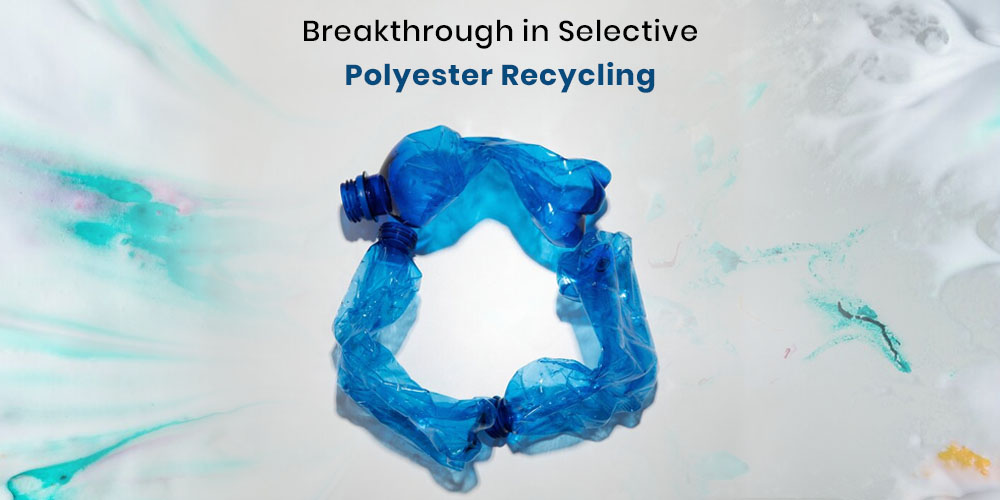Revolutionary PET Recycling Method Offers Hope for Plastic Waste Crisis
Recycling Mixed Plastic Waste by Innovative Method of TMU Researchers.
One material that will outlast humanity and remain on Earth for centuries, regardless of our presence, is plastic. Shockingly it takes 20 to 500 years to decompose and even then it does not fully disappear. They break down into small particles called microplastics, which take more than 1000 years to break down and may never be decomposed fully. Currently, over 350 million metric tons of plastic waste is produced annually, which will triple in quantity by 2060 and touch 1 billion metric tons. This alarming situation needs to be addressed promptly to save the existence of human beings as well as nature.
A study led by Tokyo Metropolitan University professor Kotohiro Nomura, published in Industrial Chemistry and Materials, details a depolymerizing PET (polyethylene terephthalate) that is made using alcohols and a cost-effective, readily available iron trichloride catalyst. This method allows for the selective chemical recycling of mixed textile and plastic waste as the rate of plastic reuse, particularly chemical recycling into raw materials, is still low.
Polyesters, composed of repeated ester linkages generated by the reaction of carboxylic acids and alcohols, are widely utilized in plastic bottles and clothes. Breaking these ester linkages may allow polyester to be dissolved into its original components. However, standard procedures for this process require high temperatures and significant volumes of acidic or basic substances. As a result, there is a considerable demand for a more straightforward, cost-effective, and environmentally responsible solution.
There is a global need to develop technologies for selective depolymerization of polyester from plastic waste, particularly polyester-cotton combinations present in waste textiles. Recent research has presented a unique method for depolymerizing PET bottles using ethanol and iron trichloride (FeCl3) or iron bromide (FeBr3), which eliminates the requirement for acids and bases. This process has a high degree of selectivity, producing diethyl terephthalate (DET) and ethylene glycol (EG) at 98-99% efficiency.
At 160-180 ºC, iron trichloride (FeCl3), a readily available and inexpensive catalyst, outperformed titanium-based catalysts. This novel technique allows for the exclusive and selective depolymerization of PET from textile waste, which frequently comprises PET and cotton mixes. The process works well for separating PET from mixed plastic garbage since it produces diethyl terephthalate (DET) and ethylene glycol (EG) while also quantitatively recovering cotton. Furthermore, the catalyst promotes PET depolymerization from other plastics, such as polyethylene, with excellent selectivity.
This research represents a huge step forward in chemical recycling, providing a viable alternative for achieving a circular economy by efficiently recycling textile waste. The JST CREST program (Grant Number JPMJCR21L5) is funding the research, which is aimed at developing bio-based polymers and chemical recycling.
Journal Reference:
Awang, N. W. B., et. al. (2024) Depolymerization of PET with ethanol by homogeneous iron catalysts applied for exclusive chemical recycling of cloth waste. Industrial Chemistry and Materials. doi.org/10.1039/D4IM00081A
Editor’s Note:
Tokyo Metropolitan University, operated by the Tokyo Metropolitan Government, is unique as it provides education that equips students to respond to societal changes. It excels at both fundamental and practical research, with an emphasis on issues affecting big urban areas. Professor Kotohiro Nomura of TMU released a significant work in Industrial Chemistry and Materials that describes a novel approach for depolymerizing PET. Using ethanol and a low-cost iron trichloride catalyst, this method efficiently recycles PET from mixed textile and plastic waste without the use of hazardous chemicals. The technique yields 98-99% selectivity, representing a huge step forward in chemical recycling and promoting a circular economy.
Skoobuzz appreciates Tokyo Metropolitan University's efforts to provide innovative solutions to combat the ongoing issue of plastic waste.














0 Comments (Please Login To Continue)